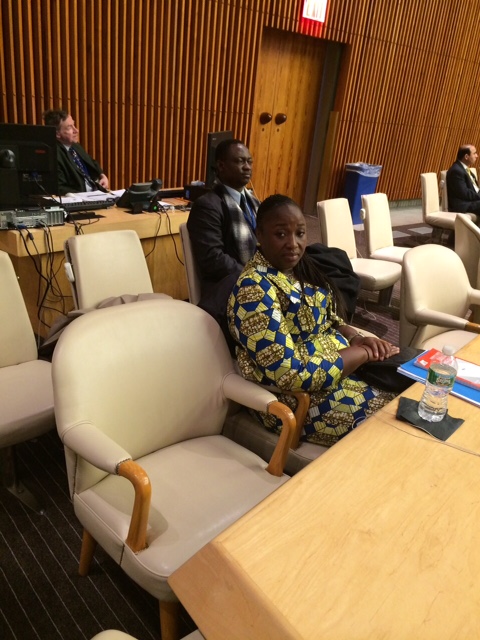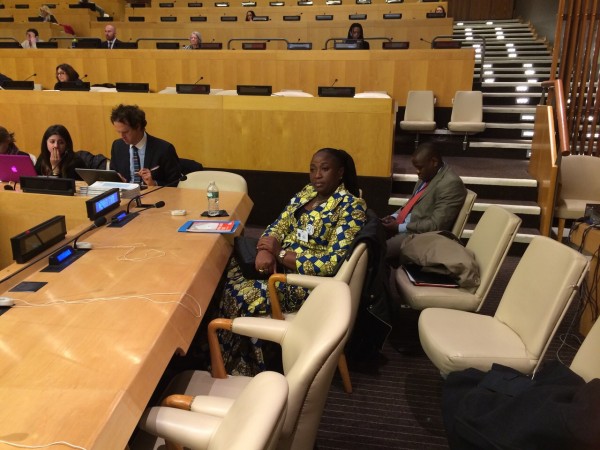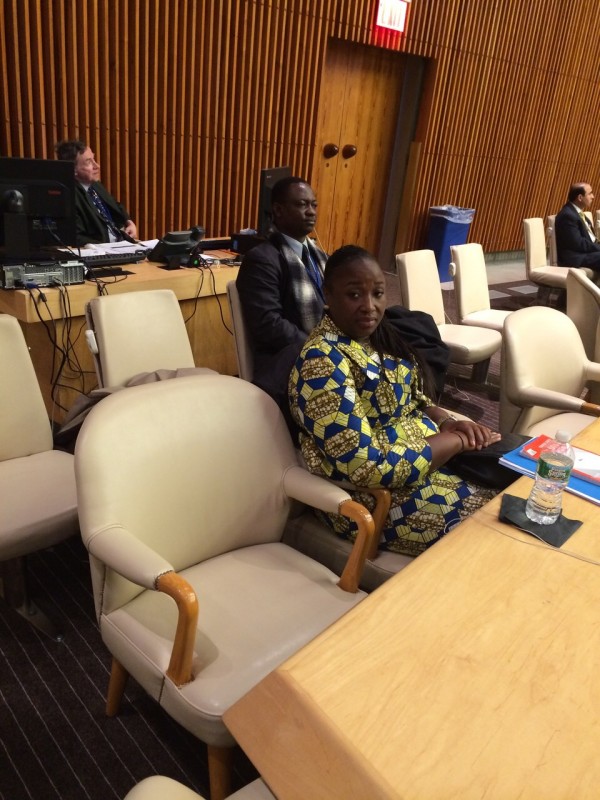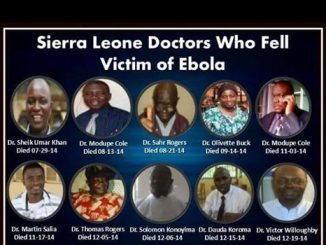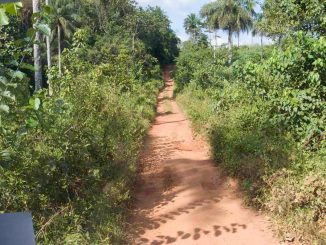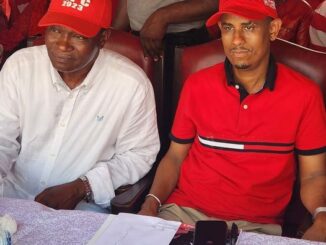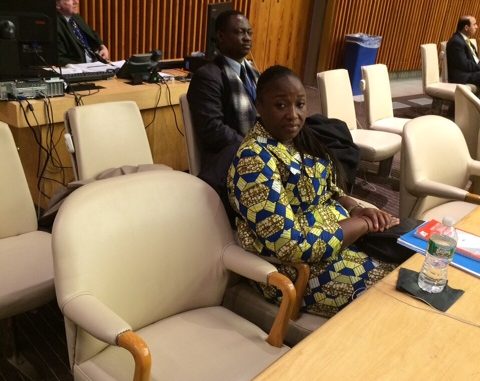
Minister Diana Konomanyi at the UN Forum
World Women’s Health and Development Forum
New York, 11th & 12th February 2015
Empowerment of Women in Science and the Economy – Sierra Leone perspective
Plenary Address by Hon Finda Diana Konomanyi
Minister of Local Government & Rural Development, Government of Sierra Leone
Mr. Chairman, Distinguished Delegates,
At the outset, I wish to thank you and the organizers for convening this important meeting and for inviting me to participate in its deliberations, which I believe you will steer to a successful conclusion. In my attempt to address the need for “Empowerment of Women in Science and the Economy” from the Sierra Leone perspective, I would like to draw attention to our tradition and socio-cultural setting as a background to my presentation.
Mr. Chairman,
The traditional role of women has principally been child bearing and motherhood, small-scale subsistence gardening and petty trading; hence the niche of the woman’s activities in our traditional society has been, by and large, the home.
Our 2004 national census recorded that 53 per cent of our approximately six (6) million population are female, the bulk of whom live in rural settlements with low literacy rates. The female population is thus generally lacking in socio-economic capacity. The girl child of largely poverty-stricken rural families was given into early marriage as a source of poverty alleviation, resulting in early motherhood with attendant consequences. Women and girls in exception of this situation are in the minority.
Mr. Chairman
The Government of Sierra Leone has risen to the challenge and is determined to improve the appalling situation. Major policy decisions have been taken, and appropriate legislation has been enacted, among other measures to improve the position of women, and to empower women in science and the economy.
In order to tackle the problem of very high maternal and infant mortality rates, in 2010 Government with support of development partners, introduced the Free Health Care Services Initiative for pregnant women, lactating mothers and children below the age of five years. Though the scheme faced implementation challenges, it has resulted in a significant uptake of reproductive, maternal and newborn services. Sierra Leone’s maternal and infant mortality rates are improving as a result. However, we have the continuing challenge of sustaining improvements gained so far.
Significant national legislation relating to rape, sexual abuse, domestic violence, early or forced marriage, discrimination in inheritance, marriage and property rights, among others, have been enacted to protect women’s rights, empower them in society and enhance their mental health and well-being. Three Gender Acts have been enacted – the Domestic Violence Act 2007, the Devolution of Estates Act 2007, and Registration of Customary Marriage and Divorce Act 2009. In 2013 the Sexual Offences Act was enacted by Parliament.
It is important for women to have a strong voice and confidence to take leadership in civic life, and be active economic players in our communities. Today, about half of the members of our Local Councils’ Ward Committees – the units that represent the lowest level of governance in the decentralization process – are women. This empowers them at the grassroots to strengthen women’s voice and ensure that development issues are addressed from women’s perspective.
Beyond that, we have good news at the national level. Sierra Leone has a record of successful women in the business sector and in different professions. Women hold several key positions, including ministerial, and managing important national offices. Sierra Leone’s recently retired Chief Justice, was the first female Chief Justice in the sub-region. Our current Auditor-General, Solicitor-General and the Head of our National Revenue Authority are women. In the Office of the President, there is a Gender Adviser, State Chief of Protocol and the Executive Chairperson of the Environmental Protection Agency who are all women. Our Armed Forces has the first female Brigadier-General in the sub-region, who is the Assistant Chief of Defence Staff for Gender and Equal Opportunity. I can give many more examples of women holding key positions in public life. I myself am the first woman to hold the position of Minister of Local Government and Rural Development. I believe there are only seventeen countries in the world where this position is held by women.
Mr. Chairman, empowering women is basically about providing both formal and informal education opportunities for intellectual and skills development. These are the foundations stones for gainful employment to promote economic independence, self-fulfillment and confidence.
In the area of education, Government has taken policy measures to encourage greater girl-child education. In addition to waiving tuition fees in the Free Education for all primary school children, Government pays for books and uniforms for girls in their three-year Junior Secondary schooling. Furthermore, in order to encourage them to pursue careers in science beyond that level, the girl child science students are automatically awarded Government scholarships at the Senior Secondary and Tertiary institutions.
What is required, are the opportunities to increase women’s social and economic status, and capacity to compete at par with their male counterparts at all levels in every sector. To that end, Government’s vision for the empowerment of women in science and the economy is consistent with global aspirations. The Government’s strategic roadmap for sustainable development, the “Agenda for Prosperity”, includes a Pillar that addresses the crucial importance of women and gender parity in the development of Sierra Leone.
With our abundant natural resources (agricultural, mineral and marine), we are aware that our future in creating national economic wealth depends on the development of our human resource capacity, to enable us to efficiently exploit and manage these and other national resources. Engineering, science and technology skills will be central to achieving this goal. Women need to be equal partners in this national pursuit and should be offered relevant opportunities for active participation in all sectors.
In agriculture, Government has provided special opportunities as an incentive for women to engage in small-scale commercial farming. In that regard, Government is implementing a new policy to assist women with the appropriate agricultural machinery and required funding to enable them to increase their production on a commercial scale. The World Food Programme (WFP) has partnered with Government in this initiative by providing ready market outlets for their harvests. The promise of economic empowerment in this policy has started to attract an appreciable number of women into this programme. With the availability of increased funds at Government’s disposal, this project will significantly impact on the socio-economic welfare of women and national development.
Government also engages the private sector at every opportunity in finding ways of increasing opportunities for women to develop careers in the manufacturing and mining sectors. Large-scale mining companies have sponsored specialist training for female geologists and engineers. I am happy to share with you that from 2007 to 2012, the percentage of women in the mining sector increased from 9.6% to 21.4% while in the manufacturing industry there has been an increase from 21.7% to 34.9% in the same period. We strive to maintain this momentum.
Government on its part, has partnered with the friendly Government of India in empowering local women who have no formal education, by providing them expert training in solar energy technology. This has led to the foundation of the “Barefoot Women’s College” in the rural Port Loko District of Sierra Leone. Built by Government, it is the first of its kind in Africa. An initial 12 women from village communities, were chosen for the training in India. They are now employed as solar engineers, maintaining solar light systems in their villages, and are training other local women. This serves as a bright example of the Government’s determination to empower women in science and the economy in Sierra Leone.
As another example of local economic development, my Ministry partnered with UN Capital Development Fund (UNCDF) and UN Women to run pilot programmes for Gender Equitable Local Development (GELD) in two localities. They have focused on facilities like Children’s Day Care Centres and health facilities that support women in maximizing their economic activity. They also provide training for managerial and other job positions in local enterprises. This has provided some women an opportunity to contribute positively to the development of their communities and lift themselves out of poverty with a sense of self-fulfillment. It is a model that can be replicated elsewhere.
In summary, Mr. Chairman and Distinguished Delegates, my vision for women is not only to bear and raise children, but that they should be active members of society as workers, leaders and equal partners in social and economic change and development.
I thank you all.

